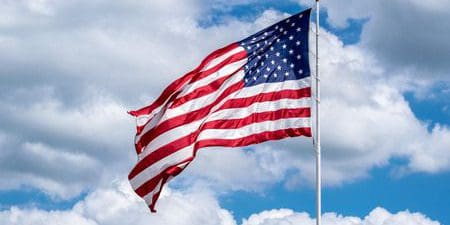The market for online gambling in the United States is at a crossroads. After years of the U.S. market being dominated by largely offshore operators, a new wave of state-regulated online gambling products is changing the landscape in dramatic ways.
While the number of individual states with regulated options is still relatively small, we’re at a point where affiliates will need to make a decision about which path they want to pursue in the U.S., as regulators have made it clear that you can’t have it both ways.
Below are four things affiliates wrestling with that decision need to be aware of.
Keep an eye on sports betting
The U.S. Supreme Court is currently considering a case that could result in the dismantling of a existing ban on state-regulated sports betting. That ban has kept legal sports betting in the U.S. largely confined to Nevada. Should the Court come back with a favourable decision, the nature of the affiliate opportunity in the U.S. market will change literally overnight.
Regulated sports betting will still take some time to actually launch in the U.S., and not all states will offer it, but enough states have already shown interest to ensure that the market will be a strong, robust one with plenty of opportunity for online gambling affiliates.
A U.S. market without regulated sports betting may still be worth your attention, but a market with regulated sports betting is one that you simply can’t afford to ignore.
The Supreme Court’s decision is expected by June 2018 at the latest.
Prepared to be licensed
One key difference that affiliates pursuing the regulated U.S. market must consider is the fact that you will have to hold some type of license in order to promote brands in regulated markets.
The nature of that license, and the amount of investigation and scrutiny that goes with it, depend on a few things. First, policies will likely vary from state to state. Second, you’ll generally need a greater level of licensure if you’re planning to work on revenue share as opposed to CPA (historically, any time you get involved with the revenue flow in the U.S. gambling market, your licensing requirements jump up a level).
Ultimately, acquiring a license is a process that will consume some time and some money, but there are plenty of resources that can help you navigate the process. The best route is to work with a local counsel who knows the regulatory body and the process. Doing so will give you an important advantage when it comes to sailing through what are likely to be uncharted waters.
The other impact of licensure: You’ll need to give up promotion of offshore sites that serve the U.S. market. Regulators have been emphatic on this point so far, and there’s no reason to expect that to change going forward.
Watch the lottery
While sports betting and online casino grab all of the headlines, there’s another emerging form of online gambling that is lower-profile, but still potentially lucrative for affiliates in the U.S. market: online lottery.
Currently live in a handful of states, online lottery is an intriguing product simply due to the widespread appeal of lottery products, which are easily the single most popular form of gambling in America.
Affiliate options for legal online lottery sites have been few and far between until this year, when the Michigan online lottery launched their affiliate program. I expect other online lottery programs to follow, and further expect to see more and more states introduce online lottery sales. Affiliates who prepare for that wave now will have a critical leg up on the competition.
Be aware of legal, but less-regulated options
For affiliates that look at the menu of regulated options and find it lacking, it’s important to remember that there are other forms of online wagering that are legal in the U.S., but not regulated to the same level as casino, lottery, or sports betting.
One example: Daily fantasy sports, which is available in over 40 U.S. states and provides a way for affiliates to round out their portfolio – and build their databases – as they wait for sports betting. Another: Online horse betting, which remains a popular product in many regions of the U.S., and sees several top-tier sites competing for players, ensuring healthy rates for successful affiliates. A third: Skill-based gaming, which is legal in more than 30 states, and includes sites where players can challenge each other in popular video games for cash.
The point is simple: While you’re waiting for the tightly regulated market to expand, there are plenty of products that can help fund the development of your network. It’s simply a matter of knowing where to look.
………
The days of offshore online gambling sites – and offshore gambling affiliates – dominating the U.S. market are drawing to a close. While offshore gambling promotion may remain viable, even lucrative, in the short term, affiliates need to seriously evaluate whether those revenue streams will remain so for the long-term. Hopefully the points above will help you to come to the decision the makes the most sense for you and your business.
Chris Grove is a consultant to Catena Media, a publicly-traded company specializing in online gambling lead generation. Catena acquired the network of sites Grove co-founded – including PlayNJ.com and NJGamblingWesbites.com – in 2017
























